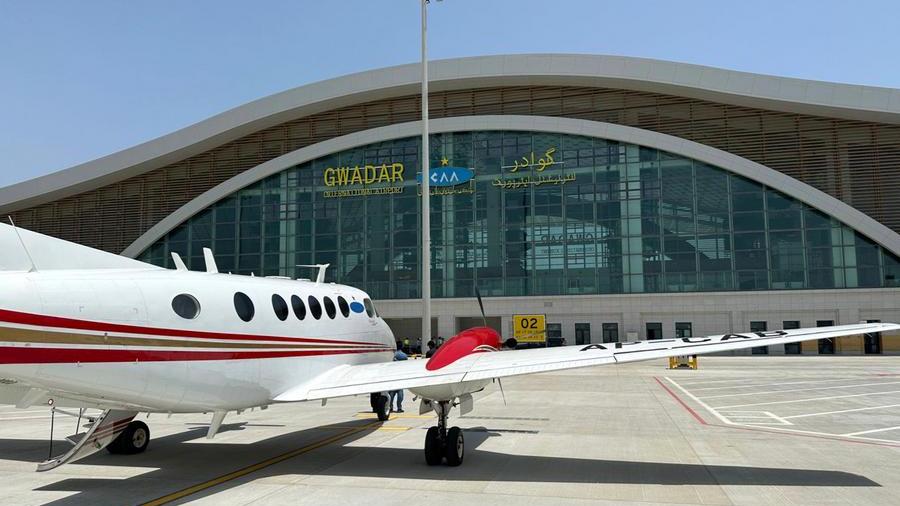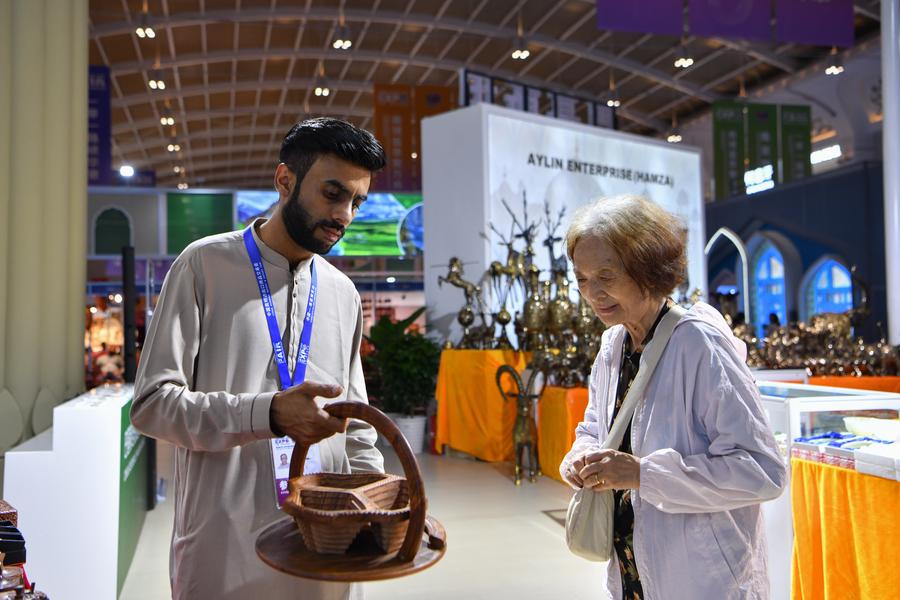
An exhibitor presents a product to a customer at the exhibition area of Pakistan at the 8th China-South Asia Expo in Kunming, southwest China's Yunnan Province, July 23, 2024. (Xinhua/Liu Lianfen)
China's reforms have not only lifted millions of people out of poverty but also created unprecedented opportunities for global trade, investment, and cooperation, the Focal Person on the Development Projects of the Government of Pakistan, Asim Khan said.
by Misbah Saba Malik
ISLAMABAD, Aug. 4 (Xinhua) -- Pakistani officials and experts said on Friday that China's transformative economic journey has a global impact, and over the years, the country has not only eradicated poverty for millions but also opened up vast opportunities for international trade and investment.
Addressing an event titled "Global Opportunities in Deepening China's Reforms in the New Era," the Focal Person on the Development Projects of the Government of Pakistan, Asim Khan, said that China has made a remarkable journey of economic reforms, which have transformed the country into a global powerhouse.
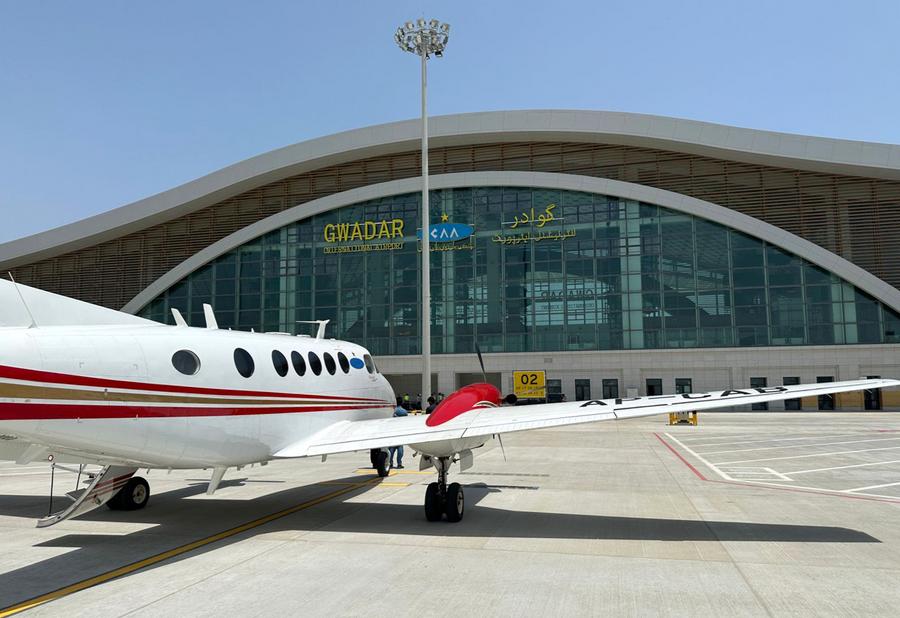
A plane parks after completing its flight test at the China-aided New Gwadar International Airport in the southwest port city of Gwadar, Pakistan, June 4, 2024. (China-aided New Gwadar International Airport Project Management Team/Handout via Xinhua)
He said that China's reforms have not only lifted millions of people out of poverty but also created unprecedented opportunities for global trade, investment, and cooperation.
China's growing influence in international affairs is undeniable and its contributions to global governance, climate change, and development financing have been noteworthy, and the Belt and Road Initiative (BRI), in particular, has the potential to reshape regional development and connectivity, he added.
"From Pakistan's perspective, we view China's BRI as a game-changer, and the China-Pakistan Economic Corridor (CPEC), a pilot project of the BRI, has transformed Pakistan's profile from a perceived safe haven for terrorism to an attractive destination for Chinese and global investment," he noted.
He hoped that Pakistan would attract more investments by relocating Chinese industries to Pakistan as there are tremendous opportunities for both countries to deepen their economic ties.
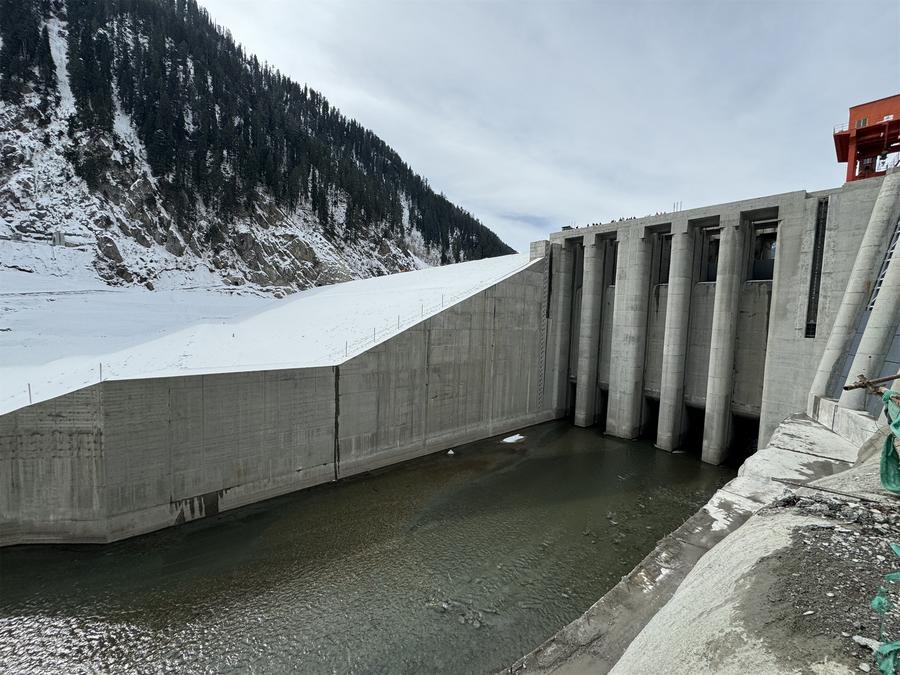
Photo taken on Feb. 28, 2024 shows part of the China-built Suki Kinari Hydropower station in the Mansehra district of Pakistan's Khyber Pakhtunkhwa province. (The Overseas Investment Company of China Gezhouba Group/Handout via Xinhua)
In his address, Khalid Taimur Akram, executive director of the Pakistan Research Center for a Community with Shared Future in Islamabad, said that China has been an engine of global growth for decades and will continue to be a key player in international development in the years to come.
China's steady economic progress and substantial potential in trade and investment are not only major positives for the current global economy, but also for the future, he added.
"China's ongoing reforms constantly shape new momentum and advantages for development, promote a new leap in productivity, and sustain the continuous high-quality growth of China's economy, bringing new opportunities to countries around the world, particularly to the iron-clad friend Pakistan," the expert said.
Speaking at the event, Liaqat Ali Khan, head of policy in the Center of Excellence for CPEC in the country's Ministry of Planning, Development and Special Initiatives, said that Pakistan can benefit from the second phase of CPEC as it provides the country with an opportunity to attract the labor-intensive and light engineering industries that are relocating due to the reform process in China.
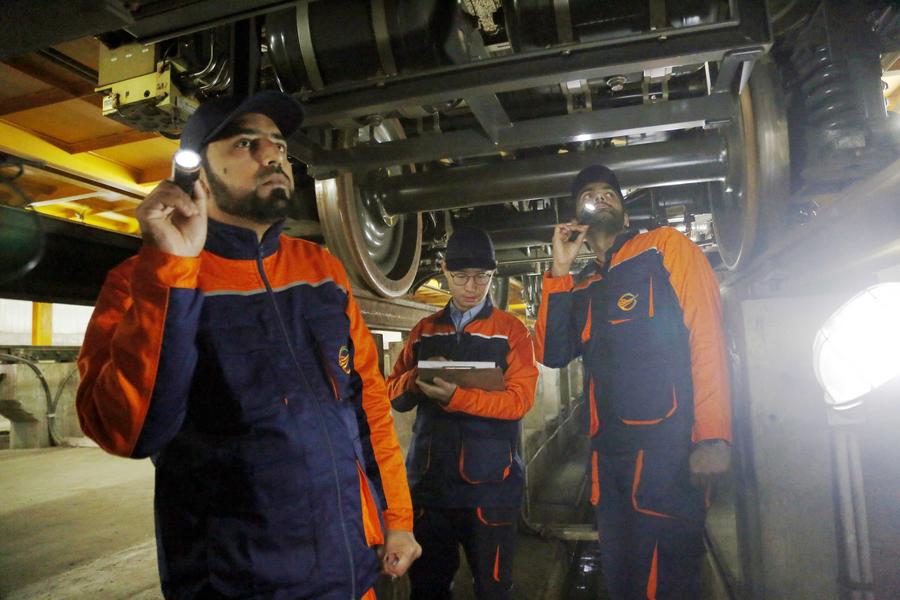
Chinese and Pakistani employees check an Orange Line Metro Train (OLMT) for maintenance in Lahore, Pakistan, Feb. 1, 2024. (Xinhua/Ahmad Kamal)
He said that the participating countries of BRI should learn to understand the reform policies of China that lead to the country's economic transformation from the coastal regions to the inland and Western areas to ensure balanced development across the country.
Launched in 2013, the CPEC is a corridor linking the Gwadar Port in southwest Pakistan's Balochistan province with Kashgar in northwest China's Xinjiang Uygur Autonomous Region, which highlights energy, transport, and industrial cooperation in the first phase, while in the new phase expands to fields of agriculture and livelihood, among others.




 A single purchase
A single purchase








